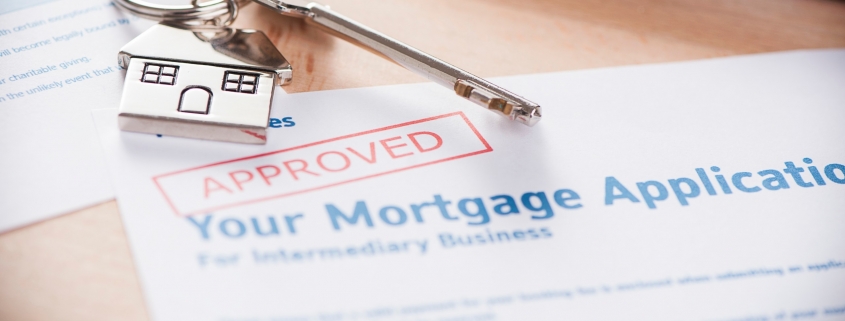Choosing to buy a home isn’t something that should be taken lightly that’s why getting pre-approved is essential. It’s a major decision that can significantly impact one’s life. There are a lot of steps that need to be taken to complete the process.
One of the most important steps is getting pre-approved for a mortgage loan. While it isn’t always required, it is recommended by many real estate and lending experts. It’s a relatively painless procedure that should only take a day or two at most.
Buying a home in California can take some time. Getting pre-approved for a loan can make the experience a little less stressful. Here are some reasons why getting pre-approved is essential:
1. You’ll know just how much you can borrow.
One of the biggest reasons to get pre-approved for a mortgage loan is so that you can determine how much you can borrow. This way, you won’t end up looking at properties that are more than you can realistically afford. This can lead to you falling in love with a property that is ultimately out of your price range, and could make all other houses in your price range feel a lot less desirable.
Even though you may be pre-approved for a specific dollar amount, it doesn’t necessarily mean that you should look for properties that are priced at that maximum price point. Remember that you’ll need to set aside funds for the down payment, closing costs, homeowners insurance, monthly utilities and other related charges.
Don’t forget about car payments, phone bills, groceries and other regular expenses, either! After obtaining a pre-approval letter, it’s a good idea to review your income and expenses and set a budget for yourself. Look through everything line by line. If there are any unnecessary or redundant charges, now’s the time to cut them.
If you have credit card debt or other loans or financial obligations, you should either pay them off or pay them down as much as possible. This will help to improve your credit score. You should start setting aside funds from each paycheck to go towards your goal of owning a home.
2. You’ll have an advantage over other interested parties.
Getting pre-approved for a loan can also give you a distinct advantage over others who haven’t. A pre-approval letter tells sellers that a qualified lender has personally reviewed your finances and have decided that you can purchase a home. This information can give sellers confidence in you, because they know that your loan will more than likely be approved.
Most home sellers don’t want to negotiate with people who don’t have their finances in order or could otherwise be considered risky. That’s why getting pre-approved is one of the first things that you should do. It could even help you buy a home quicker.
3. You can identify any possible errors in your credit report.
When you meet with a lender, they will review your current income, expenses and debt. They will also review your credit. This is when any potential problems will most likely arise.
If there are any errors or inaccuracies on your credit report, you should work to resolve those issues immediately. If you don’t, they could prevent you from being pre-approved. Your dream of home ownership could fade away just as the process was getting started.
To get pre-approved for a loan, you’ll need to provide documentation for the following items:
– Income and employment information (tax forms, pay stubs, etc.)
– Any current debt or liabilities (student loans, car loans, etc.)
– Checking, savings, retirement and other bank accounts
– Any property that you currently own
– Any additional assets that you own
– Your employer’s contact information
The lender will review all of this information. They will inform you if additional documentation is needed, and then make a determination as to whether or not they will issue a pre-approval letter.
Once you’ve been pre-approved, you can start researching homes that you can afford. You can also comparison shop for mortgage loans at different lending institutions. Look at each offer carefully and feel free to ask questions if you don’t understand something or need clarification on specific items. Make sure that you read the contract carefully before agreeing to a particular mortgage loan.
Pre-approval letters are typically only valid for 30 to 90 days. If your home search is going to take longer than that, you may want to get multiple letters. This is a safeguard so that you can concentrate on finding the home that best meets your needs.
Just keep in mind that a pre-approval letter doesn’t guarantee that you’ll be approved for a loan. You could still be denied for various reasons. Your financial situation could also change. Any added debt, loss of a job or other factors could affect your ability to secure a mortgage loan.
A loan is a serious obligation and should be treated as such. That’s why it’s important to read the details of the mortgage contract so that you fully understand your responsibilities. Once you’ve been approved for a mortgage loan and close on a home, take a few minutes to re-examine the mortgage contract. You may want to add the mortgage payment amounts and due dates on your calendar so that you don’t forget.
Pre-approval is just as necessary as all of the other parts of the home buying process. The only exceptions are if you’re building our home, have already been approved for a loan or if you intend to pay for your home all at once up front. All you need to is to supply a few financial documents and employment information to your lender. They should have a decision for you in a day or two.
Once you’ve been pre-approved, you can start looking at homes. Schedule a meeting with a realtor to discuss your intentions. Let them know that you’ve been pre-approved for a loan so they can start finding homes that you’d qualify for. The sooner that you take care of this, the closer you’ll be towards owning the kind of home that you’ve always wanted.
 Jose Guevara
Jose Guevara
Lead Agent
424-209-7899
support@hometuity.com



